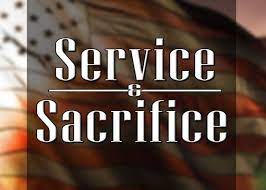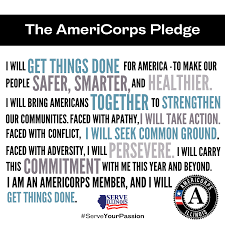
These final few months of the 2021-22 year of service with Project CHANGE prompt us to reflect on what we have learned. As we move slowly into a post Covid world, we want to ask ourselves what these last three years have taught us about serving through a pandemic?
So many of our usual expectations have had to be put aside. The normal rules of accountability, the measures of impact have had to be suspended to adapt to the changing circumstances. Yet through it all, we needed to ensure that Project CHANGE’s core business of serving students with the greatest needs was being met. Did we manage to do that? The jury’s is out on that one. We expect a favorable verdict but not unanimous.

One major lesson we are all learning is that mental health is not something we can take for granted. If the community we serve is struggling, we cannot expect to be superman or superwoman and always fly above the fray. That would not be human. However, what remains the challenge is how we take care of ourselves in a way that does not bleed into or dilute how we respond to the needs of others. Human need we know knows no boundaries but as volunteers serving with AmeriCorps, we are here to get things done, to solve problems, to persevere and put other’s needs first and to ensure we are emotionally robust and remain psychologically secure enough to be able to do that. It is not always easy and none of us always get the balance right.

One member came to drive to his service site one day to find his car had been towed. It had never happened before so he did not even know for sure what had happened. But he was in a panic more because the kids at school were expecting him in class to help with an assignment. He decided that finding his car was less important than showing up for the students as he rushed to find a bus. He had never been late before. He missed the early bus and decided that instead of waiting, he would walk the 3 miles to the school. When he arrived, he was covered in sweat but he was there and the students never knew a thing. When he had completed his service day, he went to find his car to retrieve it.
Here is a dedicated member who showed exceptional qualities of putting his needs second and honoring the commitment he had made to those kids. What was obvious to him was not obvious to another member.
This member was in full time study and semester exams were coming up and he knew that as he was still recovering from COVID, he had not done enough revision. With all the pressure, he decided he had to excuse himself for two days of serving, even though the students were relying on him to coach them for a special game. The member put the students second and himself first. It is understandable but that is not what AmeriCorps is about. He passed his exams with an A+ but the students the following week felt totally let down and wanted to know why his exams were more important than their game? What was he there for?

If your needs during your committed service hours take precedence over the needs of the students you signed on to serve, then they are getting a bad deal, and you have misunderstood what a year of service is about.
For 2022-23, we are asking ourselves how to recruit candidates who can get this balance right. This is not a job and it is not for the rest of your life. It is one year of service. It is one year where you embrace the sacrifice for the greater good. It means that some of your legitimate needs will have to be put on hold, while the needs of struggling students takes priority. That means we are asking recruits- “Are you ready to make that sacrifice?”

If your needs right now are so great, or you are struggling, then this may not be the right year to serve. You might need to rightfully to have your needs met. It is only when we know that you have a way to meet your needs, and these will not compete with your dedication to your students who need you more, that we can offer you a place.
If you come with a generous heart, but also with extraordinary needs, we cannot be sure that the students are going to gain the advantage of your care. Experience has shown us that you cannot care for your mother who has cancer and show up totally present to your students 40 hours a week. Eventually something has to give. Usually it is the member who burns out. You cannot study for your medical degree and mentor girls 35 hours a week. You are putting your studies at risk and your students at risk, and could end up failing both.

This means AmeriCorps members must have the heart for service. There is something that makes them step out of their own spotlight of self-concern and to focus on what can they do to make other people’s lives better. That means service is not going to be easy. It will cost you. Not just money or time, but in some degree of self-regard, for one year, you decide it can wait. Like the towed car was less of a problem than not showing up for your kids. Like risking a lower grade in your exam is worth coaching your kids in the game.
That does not mean you do damage to yourself, or ignore your mental health and your future prospects. No, but for this year, a special year in your life, you live a life that responds to a deeper calling to lead, to serve, to give. You are living your best self.

Some members miscalculate what a year of service is going to demand of them. And when they do, Project CHANGE will do its best to support them through, so long as they stay in the story of service. But when the needs of the members become more paramount and more prominent than the needs of the students they serve, then something feels wrong.
Perhaps it is then that one realizes that some of the habits that we might have adopted for COVID times need to be corrected. The AmeriCorps pledge has always been a touchstone of what that service is about, to persevere through adversity. Every time I hear it, I hear the echoes of the Prayer of Saint Francis, which says it is better to serve than to be served.
In these cynical times of self-serving, populist leadership, the service of AmeriCorps is what is needed right now for the mental health of the nation. Narcissism is not our national calling. Not everyone is out for themselves. We can reach out, we can act in unselfish ways, we can create what MLK called the Beloved Community, or at least if we fail, we fail because we tried. You can’t expect much more than that.
